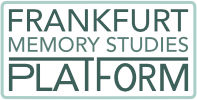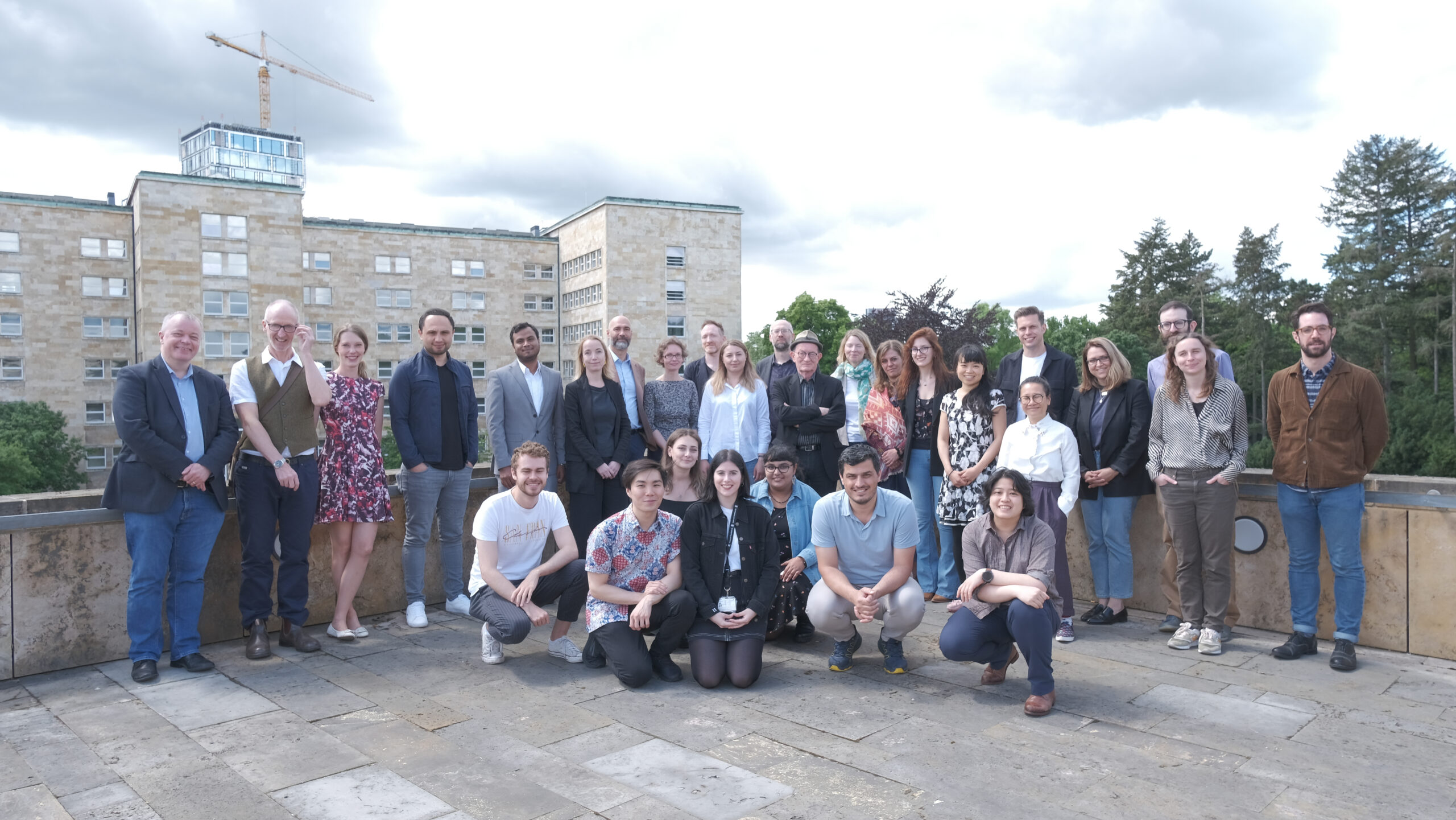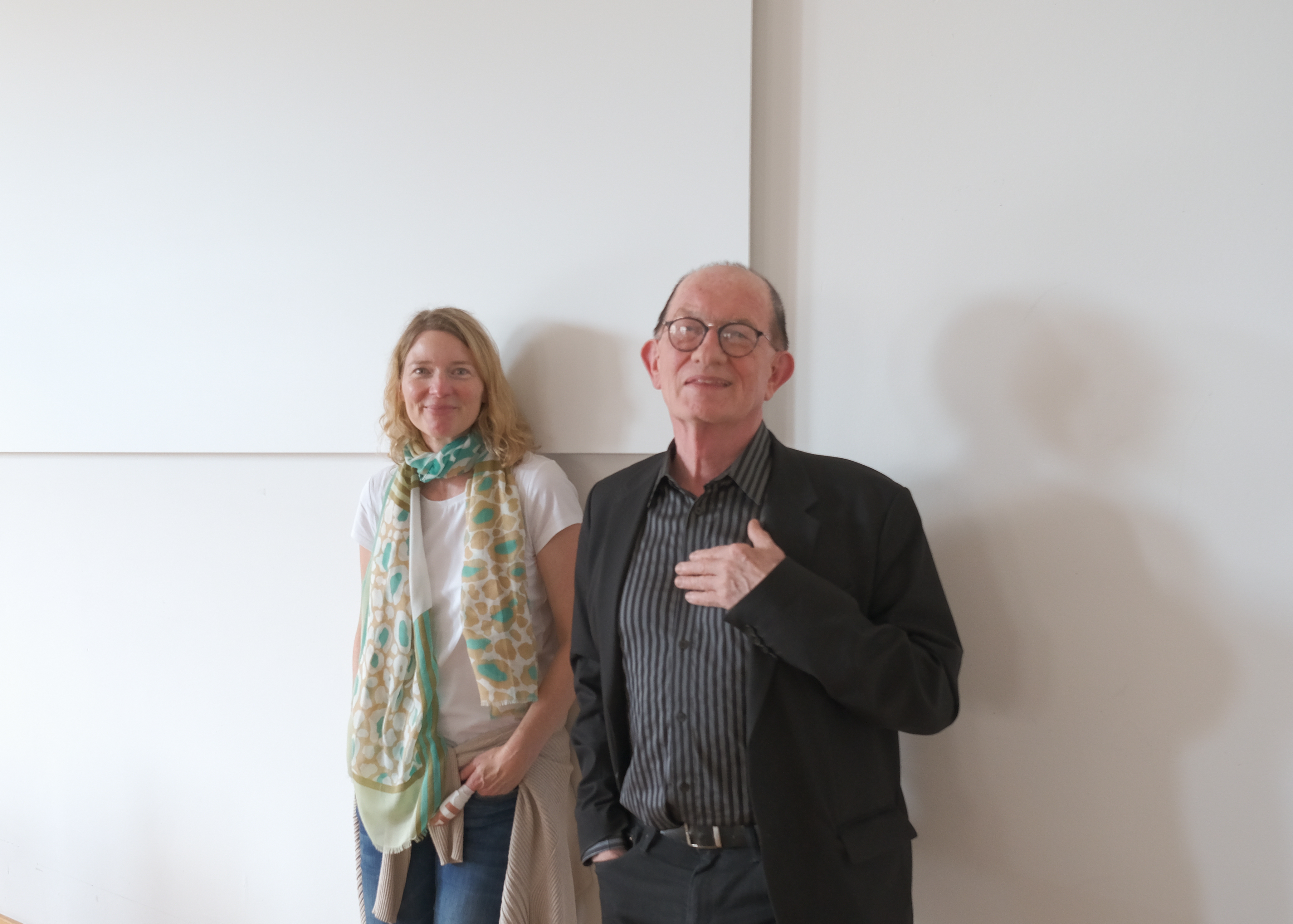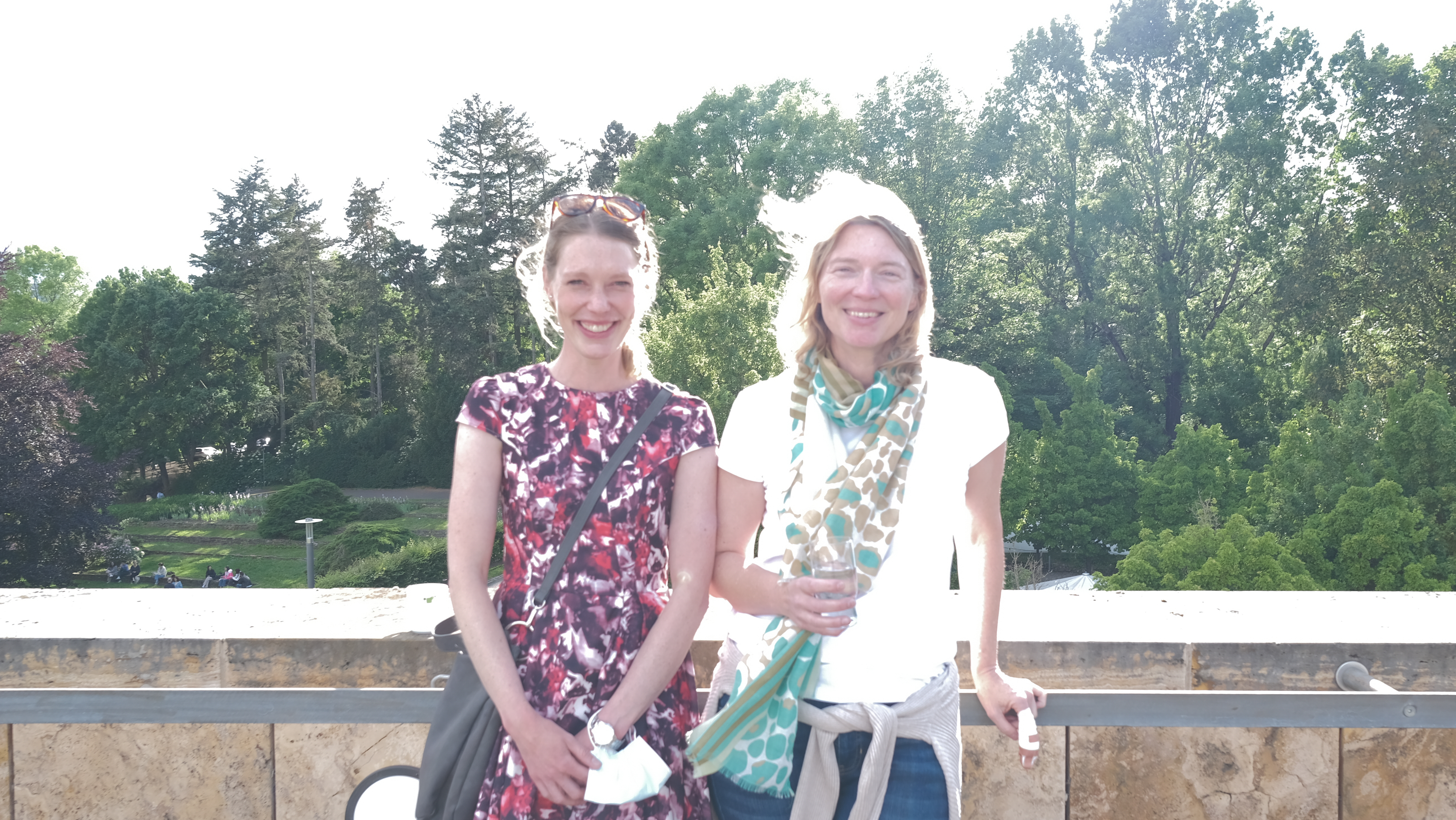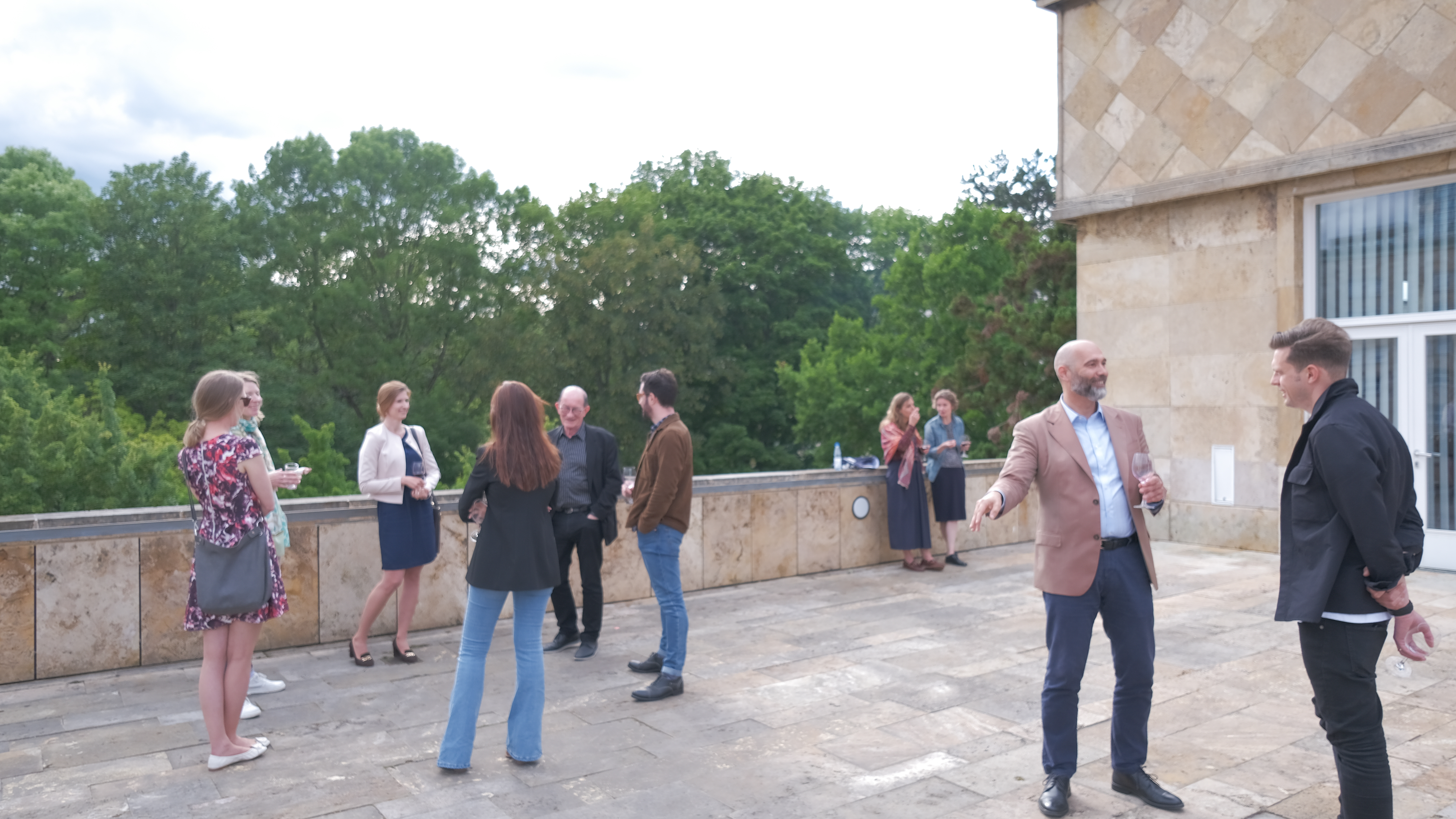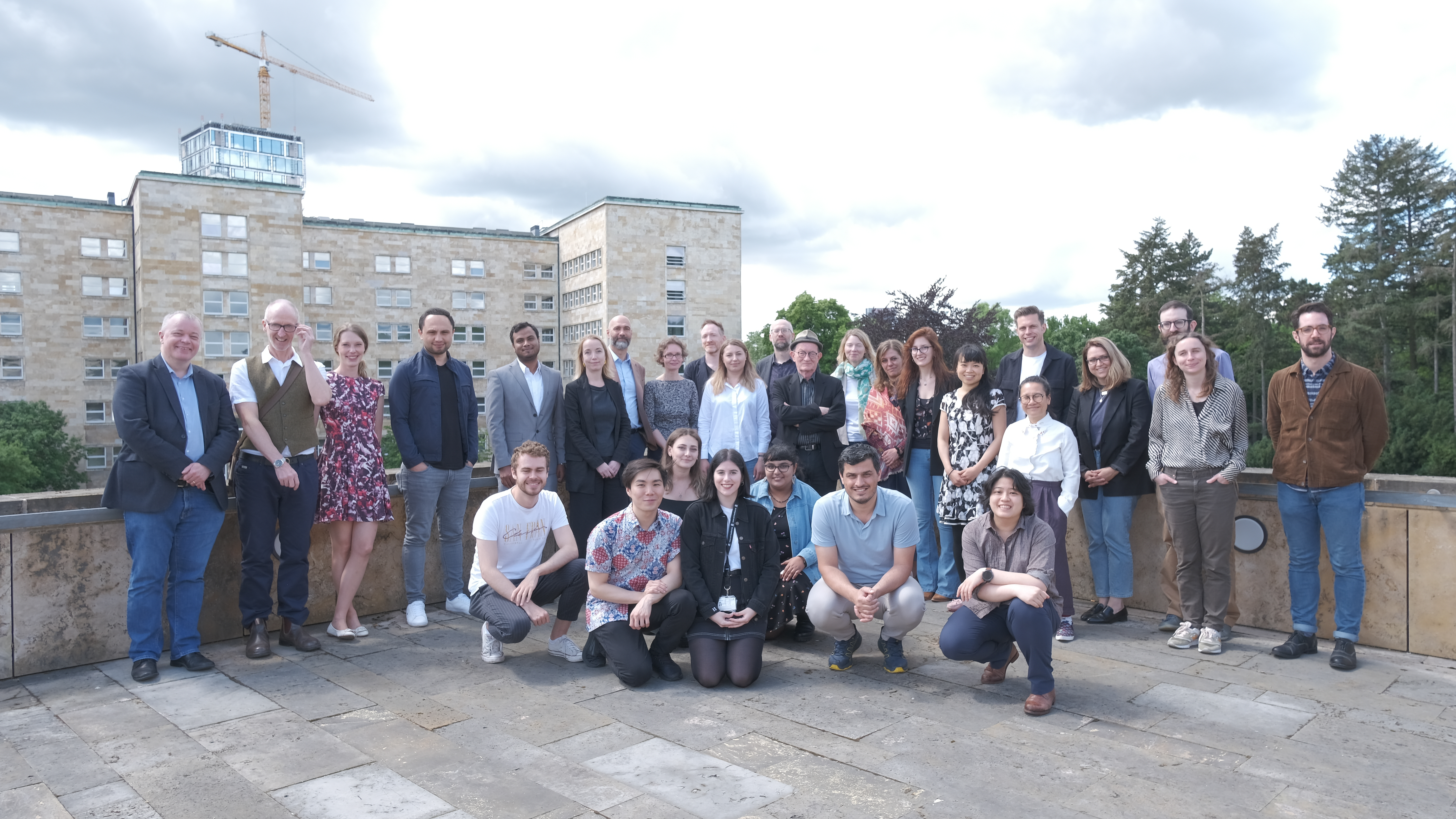Modernist Memories: 1922, Before and After
Institute of English and American Studies and the Frankfurt Memory Studies Platform
Goethe University Frankfurt
23–25 May 2022
Download the full program here.
Keynote Speakers
John Brannigan (University College Dublin)
Astrid Erll (Goethe University Frankfurt)
Jean-Michel Rabaté (University of Pennsylvania)
Modernist Memories, 1922, Before and After was held at Goethe University between 23rd and 25th of May. The conference was organised by John Greaney, who assembled an international cast of scholars from Germany, Hungary, India, Italy, Ireland, Lithuania, Poland, Romania, Turkey, Thailand, UK, and USA. Building critically on the opportunity afforded by the 1922 modernist centenary, the conference engaged the manifold relationship between modernism and memory: what was the relationship between high modernism in 1922 and the emergence of memory studies during the same period? How, where, and by what routes, have modernist concepts, forms and styles travelled one hundred years hence? And is modernism a critically colonizing term, one that that takes a century into its remit, and provides its description with certain conventions and vocabularies? In response to these questions, conference panelists engaged thematics such as modernist afterlives, remediations, rewritings and translations; modernist mnemotechnics and mnemopoetics; modernist institutions and legacies; and the arts and schemata of memory.
Modernist Memories featured inspiring keynote lectures and plenary panels from leading scholars in the fields of modernist and memory studies, and beyond. The keynote speakers for the conference were John Brannigan (University College Dublin), Astrid Erll (Goethe University), and Jean-Michel Rabaté (University of Pennsylvania). Astrid Erll gave an address, sponsored by the Consul General of Ireland to Frankfurt, on the longue durée dynamics of Homeric memory, and, particularly, the impact of James Joyce on that legacy. Jean-Michel Rabaté provided an eclectic lecture on the heretofore under-explored role of the heart in modernist mnemotechnologies, which took into account writers such as Samuel Beckett, Henri Bergson, Maurice Blanchot, T. S. Eliot, James Joyce, Niklas Luhmann, and Marcel Proust. And John Brannigan delivered a talk which countered the recent canonisation and ossification of modernism by focusing, with recourse to Joyce’s Ulysses and Virginia Woolf’s Jacob’s Room, on how modernism maintains an enduring potentiality through a commitment to provisioning for the future.
The conference’s plenary panels were given by Katherine Ebury (University of Sheffield), Barry Sheils (Durham University), Julie Walsh (University of Essex) and JT Welsch (University of York). Katherine Ebury and JT Welsch celebrated modernist alienation and estrangement in their panel, My Modernist Self: A Dialogue, by reading each other’s papers, which tackled the representation of modernism in the graphic novel, as well as the intimate relationship between poetry and suicide. Barry Sheils and Julie Walsh tackled the question of how we remember outside of ourselves. With a focus on drawing and walking, their panel ranged from Marion Milner’s psychoanalytic musings through Alan Clarke’s cinematic technique towards Anna Burns’s recent Milkman via Beckett’s Quad.
The conference ended with a spirited roundtable, which featured John Brannigan, Katherine Ebury, Jean-Michel Rabaté and Barry Sheils. Following the publication of his recent volume Historical Modernisms (Bloomsbury, 2022), Jean-Michel Rabaté provided a ten-point manifesto for modernist studies, which was subsequently discussed by the panelists and conference attendees. The debate centred on the contemporary usefulness of modernism as a critical term given the over-extension of its scope in critical discourse in recent years, as well as whether the term will be eventually subsumed under the banner of twentieth-century literature studies. Panelists and delegates, largely in accord, sought to retain modernism as a useful term, though not necessarily in its recent expansionist sense. Rather, as panelists respectively suggested, modernism is not like other movements and periods given its investment in aesthetic complexity and difficulty, and so it occupies a unique position in literary studies and the humanities in the sense that it teaches us to read a little bit better than other disciplines do. Modernist Memories thus ended on an affirmative note, one which encouraged maintaining the potentiality and the memory of a certain modernism for the future.
